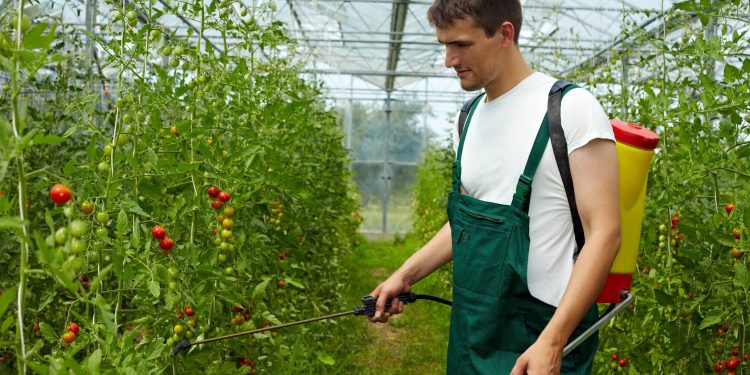#SustainableAgriculture #GreenFertilizer #ClimateChangeMitigation #MidwestFarming
Green Fertilizer to Combat Greenhouse Gas Emissions
The world is facing a growing climate crisis, and one of the major contributors to this crisis is greenhouse gas emissions. In the heart of the United States’ agricultural region, researchers are coming together to address this problem head-on. The collaboration between Iowa State University and Wichita State University is focused on developing a system that can revolutionize crop fertilizers and substantially reduce their environmental impact.
Capturing Waste Nitrogen and Carbon Dioxide
The key innovation in this project lies in the capture and utilization of waste nitrogen and carbon dioxide. These byproducts, often associated with agricultural runoff, are typically released into the atmosphere, contributing to greenhouse gas emissions. However, this research team is working on a novel approach to convert these emissions into a green fertilizer known as “green urea.”
Mitigating Nitrous Oxide Emissions
One of the primary goals of this endeavor is to combat nitrous oxide emissions, which are 300 times more potent than carbon dioxide as a greenhouse gas. By capturing and converting waste nitrogen, the researchers aim to develop a sustainable and environmentally conscious nitrogen fertilizer. This will not only benefit the environment but also Midwest farming and ranching communities threatened by climate change.
National Science Foundation’s Support
The National Science Foundation has recognized the importance of this project and is providing substantial support. With a four-year, $4 million grant from the Established Program to Stimulate Competitive Research (EPSCoR), this research is set to make a significant impact. EPSCoR grants are designed to enhance scientific infrastructure and capabilities across the nation, and this particular grant falls under the program’s “Track 2” category, which focuses on advancing climate change research and resilience capacity.
Two Teams, One Mission
The project is divided between two teams led by experts in their respective fields. At Iowa State University, Wenzhen Li is spearheading the research, with a multidisciplinary team focusing on materials, processes, and reactors for the electrochemical capture and conversion of waste nitrogen and carbon dioxide. They are also dedicated to educating farmers and ranchers about the benefits of this new green fertilizer.
In Kansas, Shuang Gu, an associate professor of mechanical engineering at Wichita State, is leading the charge. His team is responsible for capturing and concentrating nitrate, studying soil microbial communities, and conducting life-cycle assessments of green fertilizers. They will also analyze the societal impacts of adopting these environmentally friendly fertilizers.
A Holistic Approach to Sustainability
This collaborative effort extends beyond creating a new green fertilizer. It aims to build an entire system of technologies and knowledge to combat nitrous oxide emissions from fertilizers comprehensively. This includes capturing waste nitrogen and carbon dioxide, synthesizing green urea, and conducting rigorous analyses of the environmental and economic benefits of green fertilizers.
Harnessing Renewable Energy
To further enhance sustainability, the researchers plan to power their electrochemical synthesis process with wind and solar energy, taking advantage of the abundant renewable energy resources available in Iowa and Kansas. This approach aligns with the broader goal of reducing the carbon footprint associated with fertilizer production.
Strengthening Midwest Agriculture
Ultimately, this initiative is about bolstering Midwest agriculture, the heart of American farming. By reducing nitrous oxide emissions and offering an eco-friendly alternative to traditional fertilizers, this research could contribute to the long-term prosperity of Midwest farming while simultaneously addressing climate change challenges.
In the words of the researchers, “Living in the Midwest – the heart of agriculture – we felt obliged to do something to alleviate this national problem of greenhouse gas, nitrous oxide emission. The nitrous oxide-relieved nitrogen fertilizer could strengthen the long-term thriving and prosperity of Midwest agriculture, while mitigating climate-change issues.”
As the project progresses, it holds the potential to not only transform farming practices in the Midwest but also serve as a model for sustainable agriculture worldwide. This innovative approach demonstrates that addressing climate change can go hand in hand with enhancing agricultural resilience and economic viability.











